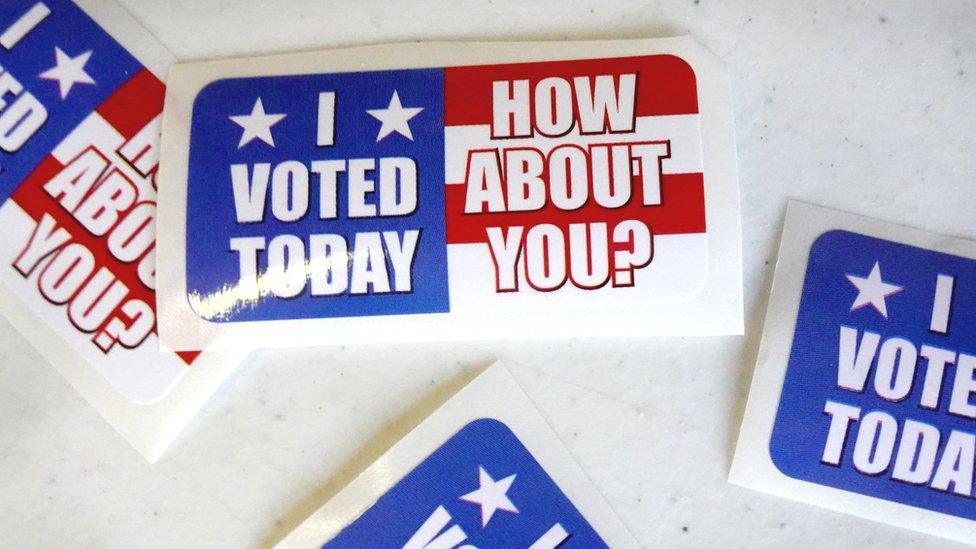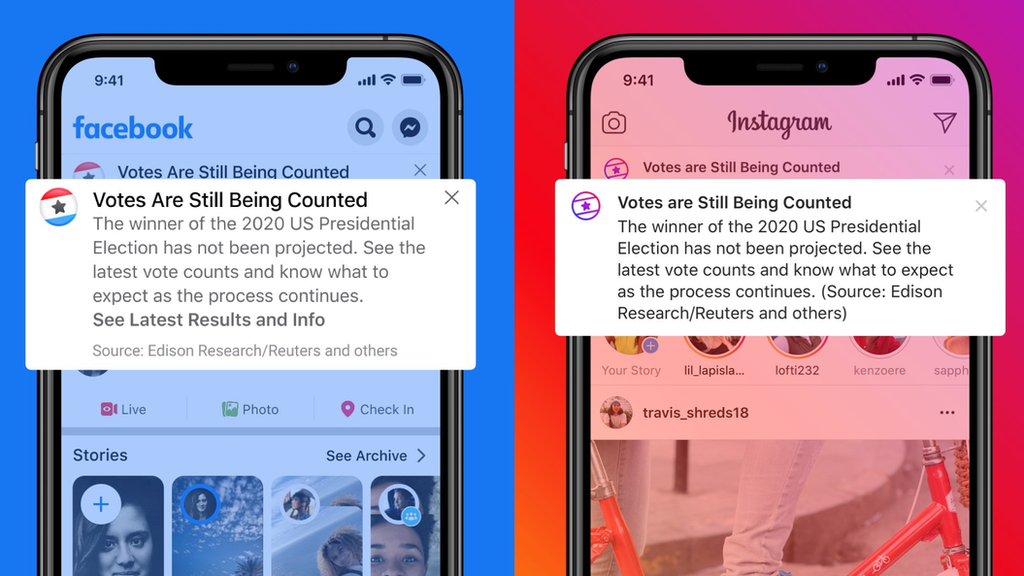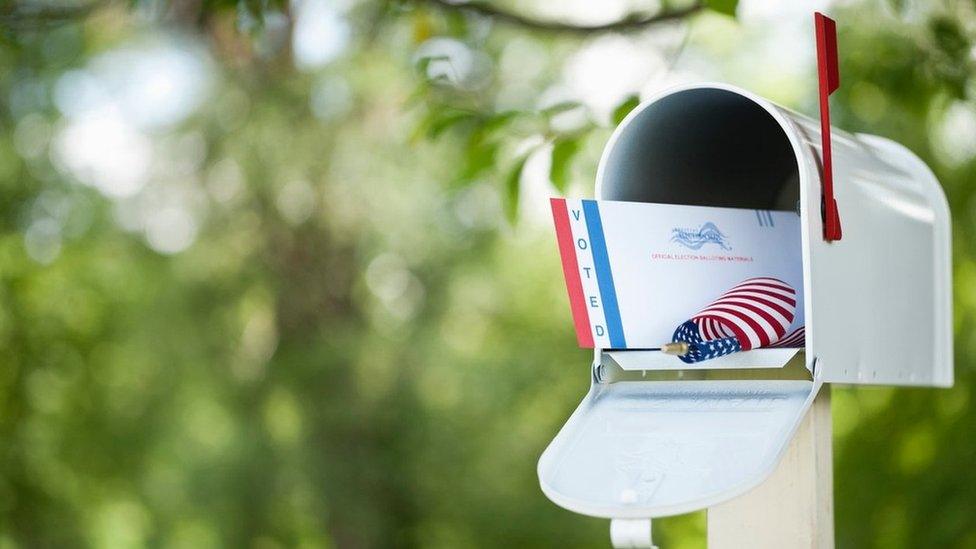Facebook to halt political ads after US election
- Published

Early voting is already under way ahead of the 3 November polling day
Facebook has said it will stop running all political and social-issue adverts after polls close in the US presidential election on 3 November.
It said the temporary measure would "reduce opportunities for confusion or abuse" ahead of results.
Facebook has already banned ads that prematurely declare victory in the election.
But one digital-rights campaign group said the change "isn't going to fix the problem at all".
Conspiracy theory
Fight For The Future said misinformation was often spread through Facebook Groups, which are promoted by the social-network's algorithms.
On Tuesday, Facebook announced it would remove any Pages, Groups or Instagram accounts representing a conspiracy theory known as QAnon.
But the social network has been criticised for deciding not to fact-check posts by politicians.
In a blog post, it said it would label politicians' posts, if a candidate or party "declares premature victory before a race is called by major media outlets".

Facebook will display a notification to show no result has been declared
It will also display notifications directing users to its own voting-information page.
Democrat senator Elizabeth Warren, who is often critical of Facebook, said the social network had made "performative changes".
"The problem isn't the ads themselves," she said.
"The problem is Facebook's refusal to regulate its ads, change its broken algorithm, or take responsibility for the power it's amassed."
Rival social networks, including TikTok and Twitter, do not allow paid political ads.
Facebook's policy changes
24 September 2019: Communications vice-president Sir Nick Clegg says the Facebook will not fact-check politicians
17 October 2019: Founder Mark Zuckerberg rules out a ban on political ads
17 June 2020: Facebook says it will let users switch off political ads
3 September 2020: The social network says it will not take on any new political ads in the seven days prior to the election
23 September 2020: Ads prematurely declaring victory in the US election, external are banned on Facebook
30 September 2020: The social network bans ads seeking to "delegitimise any lawful method or process of voting"


On 3 September, Facebook chief executive Mark Zuckerberg wrote a lengthy blog post about what he and his teams were doing to "protect our democracy".
This latest announcement shows he feels those steps may not have been enough.
Facebook is responding to concerns groups may try to delegitimise the election result in the the hours and days after polls close.
But how much of a problem was paid-for advertising really going to be at that stage in the election?
Would a campaign hold back election funds to spend big on adverts to deliberately delegitimise the outcome of the vote?
You couldn't bet against it in this election - but it seems unlikely.
The real challenge will be for Facebook to stop the spread of misinformation via organic content such as Group or Page posts.
Those posts are routinely far more widely shared, more engaged with and potentially more dangerous than political ads.
- Published1 October 2020
